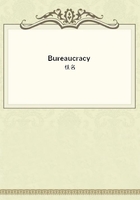
第80章 THE RESIGNATION(5)
Poiret. "He is a man paid by government to do work."Bixiou. "Oh! then a soldier is a government clerk?"Poiret [puzzled]. "Why, no."
Bixiou. "But he is paid by the government to do work, to mount guard and show off at reviews. You may perhaps tell me that he longs to get out of his place,--that he works too hard and fingers too little metal, except that of his musket."Poiret [his eyes wide open]. "Monsieur, a government clerk is, logically speaking, a man who needs the salary to maintain himself, and is not free to get out of his place; for he doesn't know how to do anything but copy papers."Bixiou. "Ah! now we are coming to a conclusion. So the bureau is the clerk's shell, husk, pod. No clerk without a bureau, no bureau without a clerk. But what do you make, then, of a customs officer?" [Poiret shuffles his feet and tries to edge away; Bixiou twists off one button and catches him by another.] "He is, from the bureaucratic point of view, a neutral being. The excise-man is only half a clerk; he is on the confines between civil and military service; neither altogether soldier nor altogether clerk-- Here, here, where are you going?"[Twists the button.] "Where does the government clerk proper end?
That's a serious question. Is a prefect a clerk?"Poiret [hesitating]. "He is a functionary."
Bixiou. "But you don't mean that a functionary is not a clerk? that's an absurdity."Poiret [weary and looking round for escape]. "I think Monsieur Godard wants to say something."Godard. "The clerk is the order, the functionary the species."Bixiou [laughing]. "I shouldn't have thought you capable of that distinction, my brave subordinate."Poiret [trying to get away]. "Incomprehensible!"Bixiou. "La, la, papa, don't step on your tether. If you stand still and listen, we shall come to an understanding before long. Now, here's an axiom which I bequeath to this bureau and to all bureaus: Where the clerk ends, the functionary begins; where the functionary ends, the statesman rises. There are very few statesmen among the prefects. The prefect is therefore a neutral being among the higher species. He comes between the statesman and the clerk, just as the custom-house officer stands between the civil and the military. Let us continue to clear up these important points." [Poiret turns crimson with distress.] "Suppose we formulate the whole matter in a maxim worthy of Larochefoucault: Officials with salaries of twenty thousand francs are not clerks. From which we may deduce mathematically this corollary:
The statesman first looms up in the sphere of higher salaries; and also this second and not less logical and important corollary:
Directors-general may be statesmen. Perhaps it is in that sense that more than one deputy says in his heart, 'It is a fine thing to be a director-general.' But in the interests of our noble French language and of the Academy--"Poiret [magnetized by the fixity of Bixiou's eye]. "The French language! the Academy!"Bixiou [twisting off the second button and seizing another]. "Yes, in the interests of our noble tongue, it is proper to observe that although the head of a bureau, strictly speaking, may be called a clerk, the head of a division must be called a bureaucrat. These gentlemen" [turning to the clerks and privately showing them the third button off Poiret's coat] "will appreciate this delicate shade of meaning. And so, papa Poiret, don't you see it is clear that the government clerk comes to a final end at the head of a division? Now that question once settled, there is no longer any uncertainty; the government clerk who has hitherto seemed undefinable is defined."Poiret. "Yes, that appears to me beyond a doubt."Bixiou. "Nevertheless, do me the kindness to answer the following question: A judge being irremovable, and consequently debarred from being, according to your subtle distinction, a functionary, and receiving a salary which is not the equivalent of the work he does, is he to be included in the class of clerks?"Poiret [gazing at the cornice]. "Monsieur, I don't follow you."Bixiou [getting off the fourth button]. "I wanted to prove to you, monsieur, that nothing is simple; but above all--and what I am going to say is intended for philosophers--I wish (if you'll allow me to misquote a saying of Louis XVIII.),--I wish to make you see that definitions lead to muddles."Poiret [wiping his forehead]. "Excuse me, I am sick at my stomach"[tries to button his coat]. "Ah! you have cut off all my buttons!"Bixiou. "But the point is, DO YOU UNDERSTAND ME?"Poiret [angrily]. "Yes, monsieur, I do; I understand that you have been playing me a shameful trick and twisting off my buttons while Ihave been standing here unconscious of it."
Bixiou [solemnly]. "Old man, you are mistaken! I wished to stamp upon your brain the clearest possible image of constitutional government"[all the clerks look at Bixiou; Poiret, stupefied, gazes at him uneasily], "and also to keep my word to you. In so doing I employed the parabolical method of savages. Listen and comprehend: While the ministers start discussions in the Chambers that are just about as useful and as conclusive as the one we are engaged in, the administration cuts the buttons off the tax-payers."All. "Bravo, Bixiou!"
Poiret [who comprehends]. "I don't regret my buttons."Bixiou. "I shall follow Minard's example; I won't pocket such a paltry salary as mine any longer; I shall deprive the government of my co-operation." [Departs amid general laughter.]
Another scene was taking place in the minister's reception-room, more instructive than the one we have just related, because it shows how great ideas are allowed to perish in the higher regions of State affairs, and in what way statesmen console themselves.